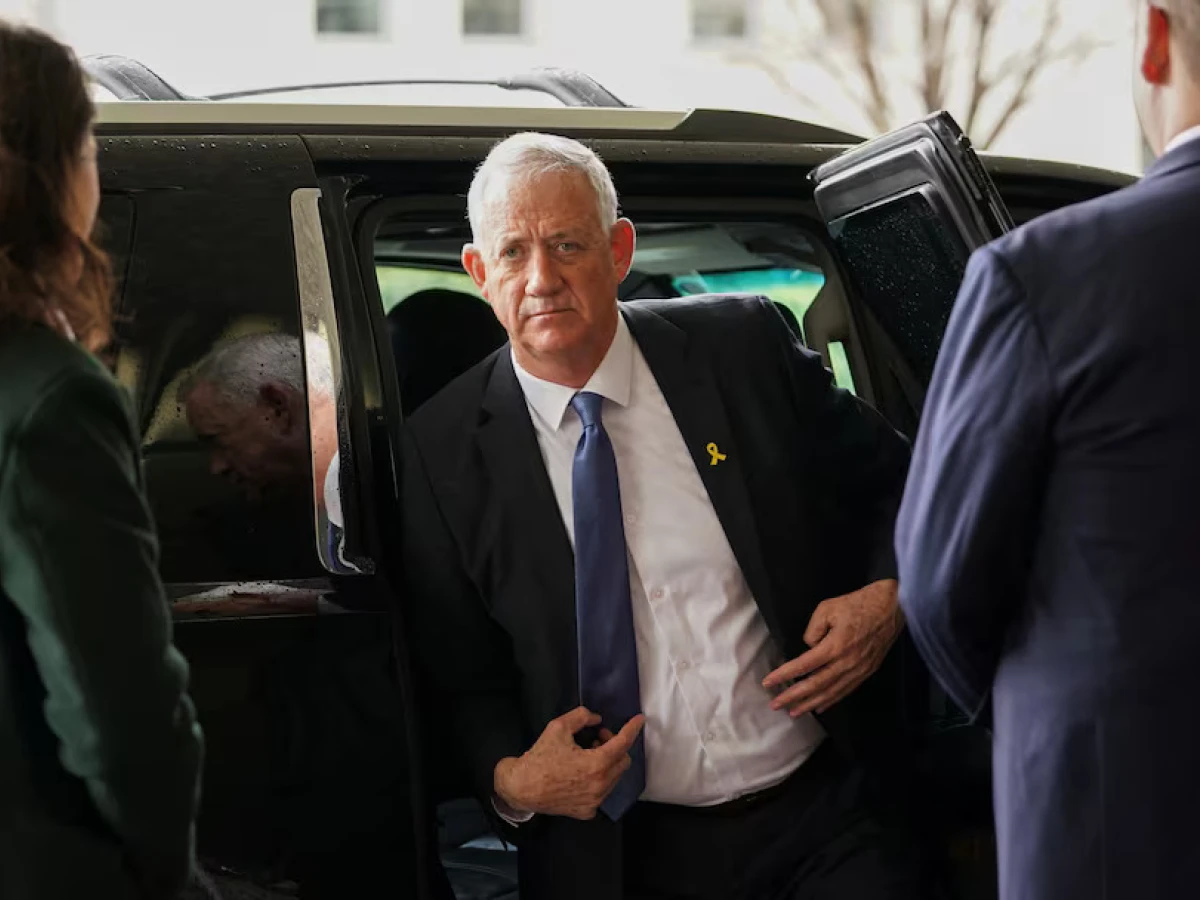
Military draft bill creates rift in Israeli government
Ultra-Orthodox parties, which represent about 13% of Israel's population, have been partners in successive Netanyahu-led governments.
JERUSALEM, March 24 (Reuters) - A member of Israel's war cabinet said on Sunday he would quit the national emergency government should proposed legislation that continues to exempt ultra-Orthodox Jews from mandatory military service be passed into law.
"The nation cannot accept it, the Knesset (parliament) must not vote for it, and my colleagues and I will not be members of the emergency government should such legislation pass in the Knesset," said centrist cabinet minister Benny Gantz.
Gantz, a former military chief who has more support than Prime Minister Benjamin Netanyahu according recent opinion polls, joined the unity government to help manage the war against Hamas after its Oct. 7 attack.
"The conscription law being drawn up by the government is a serious moral failure that will create a deep rift within us at a time when we need to fight together against our enemies," Gantz said.
His party alone would not be able to bring down Netanyahu's government. But Israel's defence minister has also come out against the bill, signaling opposition within Netanyahu's own right-wing Likud.
The proposed legislation has not been made public, but according to portions leaked to Israeli media it perpetuates long-disputed military exemptions for ultra-Orthodox Jews, and may even expand them. It also plays down the economic toll of the decades-old policy, which Israel's top economists have repeatedly warned carries a heavy price.
Defence Minister Yoav Gallant, who is just starting an official visit to the United States, said that the bill is due to be brought before the cabinet on Tuesday and that he would not support it.
Only after passing the cabinet would it be sent to parliament for approval, a process that could take weeks or months, officials have said.
A Likud spokesperson did not respond to a request for comment on the bill.
The exemptions granted to ultra-Orthodox Jews have been a longstanding source of friction with more secular citizens now stoked by the country's costly mobilisation for the war in Gaza.
Ultra-Orthodox parties, which represent about 13% of Israel's population, have been partners in successive Netanyahu-led governments. In return that have demanded their constituents be allowed to study in seminaries instead of serving in uniform.
Economists argue that the draft exemption keeps many of them out of the workforce. Opposition lawmakers call it an unfair and insulting policy to other Israelis.




